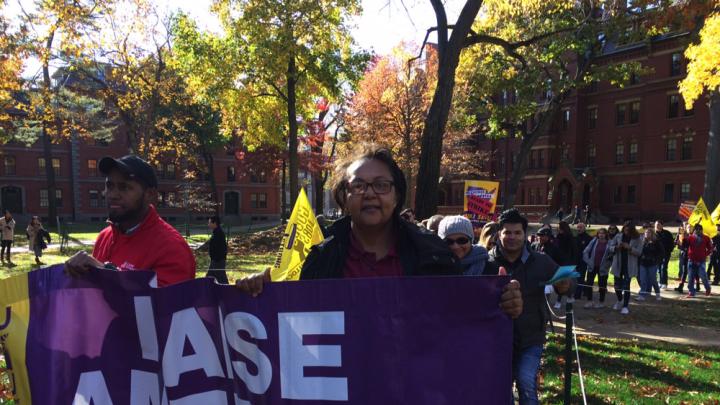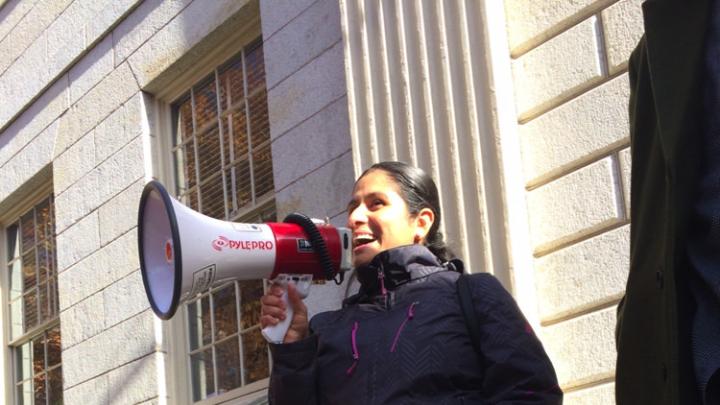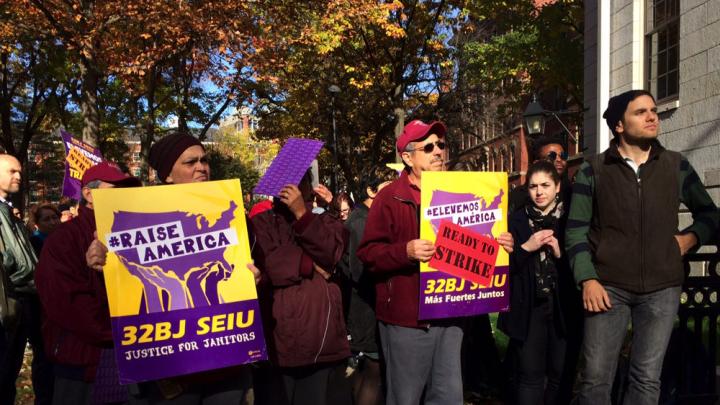For a moment, it appeared that Harvard’s custodial staff might follow the dining workers’ decision to strike, a move that last month helped them win a $35,000 minimum income and concessions from the University on healthcare benefits. 32BJ SEIU, the union that represents 700 custodial workers, reached a tentative contract agreement with the University at around 1 a.m. Wednesday morning, just a few hours after their contract expired.
Janitors will receive wage raises of 12.5 percent over the life of the four-year contract, similar to the raises that dining workers will get under their new contract, and those that the Harvard Union of Clerical and Technical Workers, the University’s largest union, received earlier this year. Because custodial staff members earn slightly more per hour than dining-hall workers, and most of them work year-round rather than the seven and a half months per year that the typical dining worker does, their financial situation is notably better. The typical custodial worker earns $22.07 per hour and $45,676 per year, according to the University; that hourly wage will increase to $24.67 by the end of the contract.
“The service workers are rightfully proud of the work they do and are determined that these jobs remain strong jobs, with good wages and benefits that create an entry into the middle class,” 32BJ vice president Roxana Rivera said in a statement. 32BJ’s statements differed in tenor from those of the dining workers’ union, whose members earned less than $34,000 annually under their previous contract and spoke publicly of chronic financial insecurity during their strike. But, like the dining workers’ union, 32BJ focuses on Harvard’s financial resources against a backdrop of rising living costs in the Boston area. “With a $34 [$35.7] billion endowment, Harvard University surely has the means to continue offering good jobs to the hardworking Bostonians who make Harvard a great university,” 32BJ spokesman Eugenio Villasente said in a statement. “Costs continue to rise in the Boston area….While the city came out of the Great Recession in much better shape than other big metropolises, not all of our residents have been able to share in the prosperity they help create. It is increasingly difficult to live and work a middle-class job and be able to afford to live here.”
Custodians had voted last week to authorize a strike if an agreement was not reached by November 15, the day the contract expired. One of the union’s main priorities was to help secure full-time work for more of its members. Currently, 30 percent of janitors work part-time. According to a statement from 32BJ, the new contract “includes language to promote full-time work.”
“Harvard’s custodial colleagues play an important role in support of the University’s teaching and research mission, and we are pleased to have reached a tentative agreement with SEIU,” University spokeswoman Tania deLuzuriaga said in a statement. “We believe this is a fair deal for both sides, and we are hopeful for a ratification.”
32BJ represents thousands of property-service workers in and around Boston, including workers at many universities. Last month, janitors at Tufts also averted a strike and negotiated a contract that will raise their wages to $21.55 per hour after four years.
In a year of unusually intense focus on labor issues at the University, Harvard’s graduate and undergraduate teaching and research assistants are voting this week on whether to form their own labor union.










